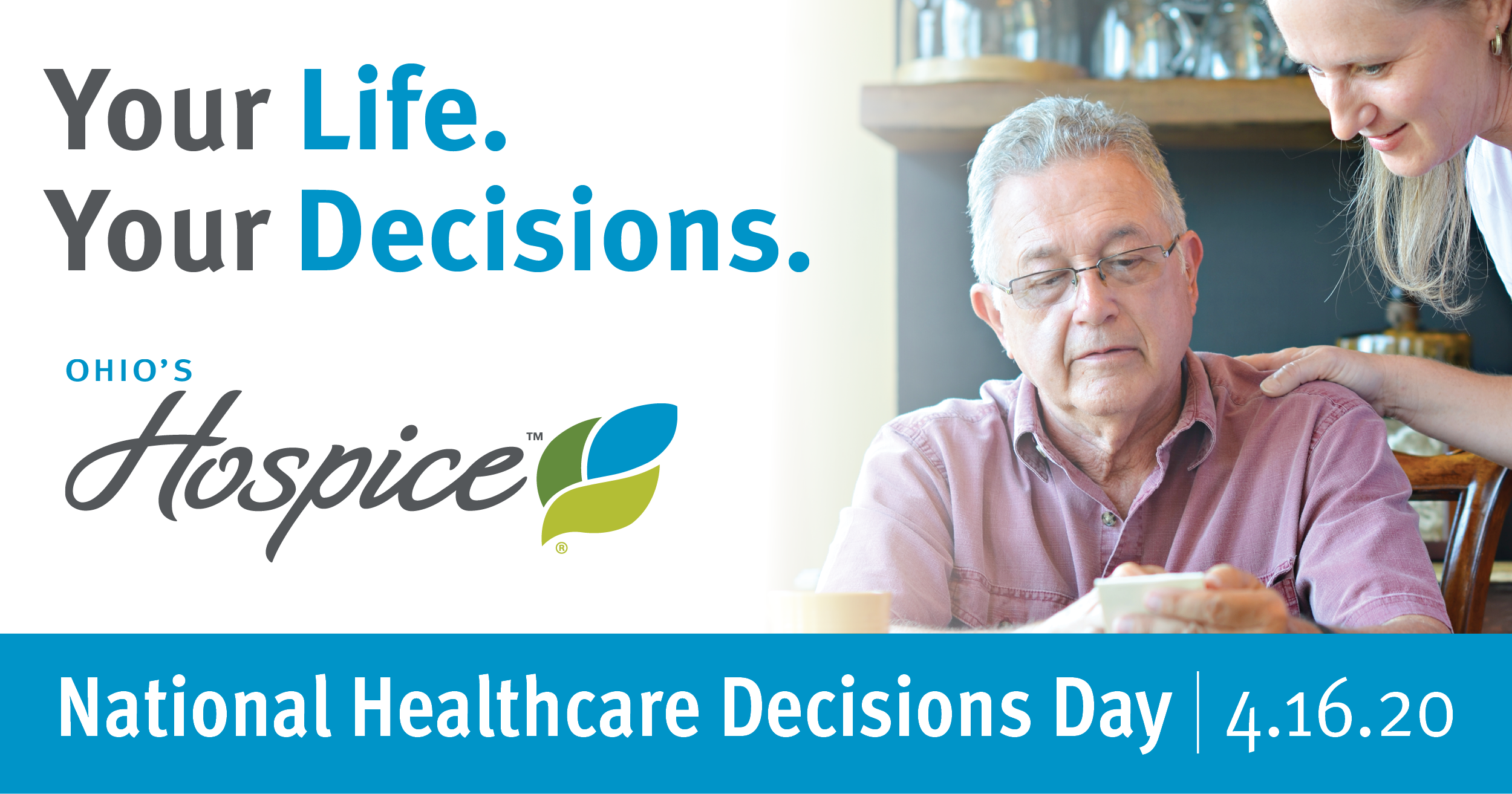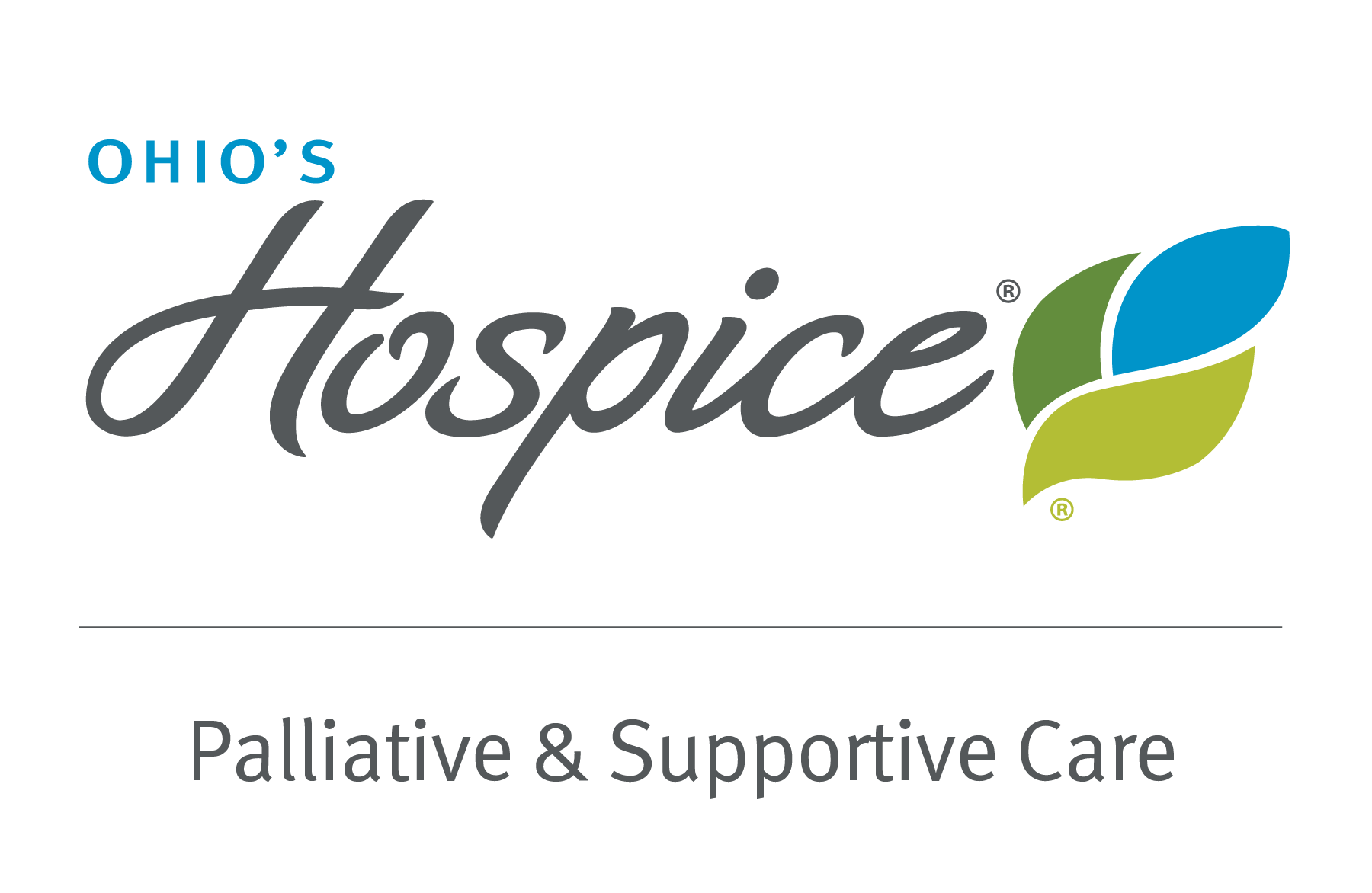
Talk With Your Loved Ones on National Healthcare Decisions Day
Each year, National Healthcare Decisions Day is recognized on April 16. But this year, the day takes on a new meaning as Americans continue to battle against COVID-19. Thousands of families have had to make healthcare decisions for their loved ones without knowing their wishes.
As part of National Healthcare Decisions Day, Ohio’s Hospice and its affiliates are reminding all individuals, regardless of age or current health status, about the importance of making their personal healthcare decisions known. It’s vital that individuals discuss their end-of-life care wishes with their family members, especially during COVID-19.
What Is Advance Care Planning?
Through advance care planning, individuals can document their future healthcare decisions and provide instructions for their medical care.
Every day, the staff members of our not-for-profit hospices help families come to terms with the unimaginable loss of a loved one. Family members are torn as they consider what is right, what is best, how to best honor the life of their loved one. There may be differences of opinion that can fracture families forever. This does not need to happen.
Why Is Advance Care Planning Important?
By sharing information with loved ones and your doctor about what you would want when you are facing life-limiting circumstances, you are not only helping yourself, you are also alleviating family members of guilt, stress, fear and potential long-lasting conflict.
According to a National Institute of Health study, only 26.3% of U.S. adults have completed an Advance Directive. Why not more? Most had thought about it but not completed the forms. The primary reasons offered were that they did not know about the forms or were concerned about cost or complexity.
What Do I Need to Know About Advance Care Planning?
In reality, it is simple, easy and free to take the steps to assure your healthcare decisions are honored, and the forms are readily available. These documents include a living will, durable power of attorney for healthcare, and other advance care planning documents.
What Is a Living Will?
Through a living will, you can decide and document the type of care you would like to receive if you could not communicate with your family because you became permanently unconscious or terminally ill.
What Is a DNR Order?
If you do not wish to have cardiopulmonary resuscitation (CPR) performed, you can specify your wish through a Do Not Resuscitate (DNR) order.
Why Do I Need a Health Care Power of Attorney?
A Health Care Power of Attorney helps make medical decisions for you when you become temporarily unconscious and medical decisions need to be made. Through a Health Care Power of Attorney, you can ensure that your wishes regarding life-sustaining treatment are followed.
What Are My Next Steps?
Show your love for your family by taking the necessary steps to establish your wishes. They will be forever grateful to you for it.
You can begin the conversation by visiting our website and discussing the forms found on our website here.
You also can learn more by visiting Decide to Be Heard.

